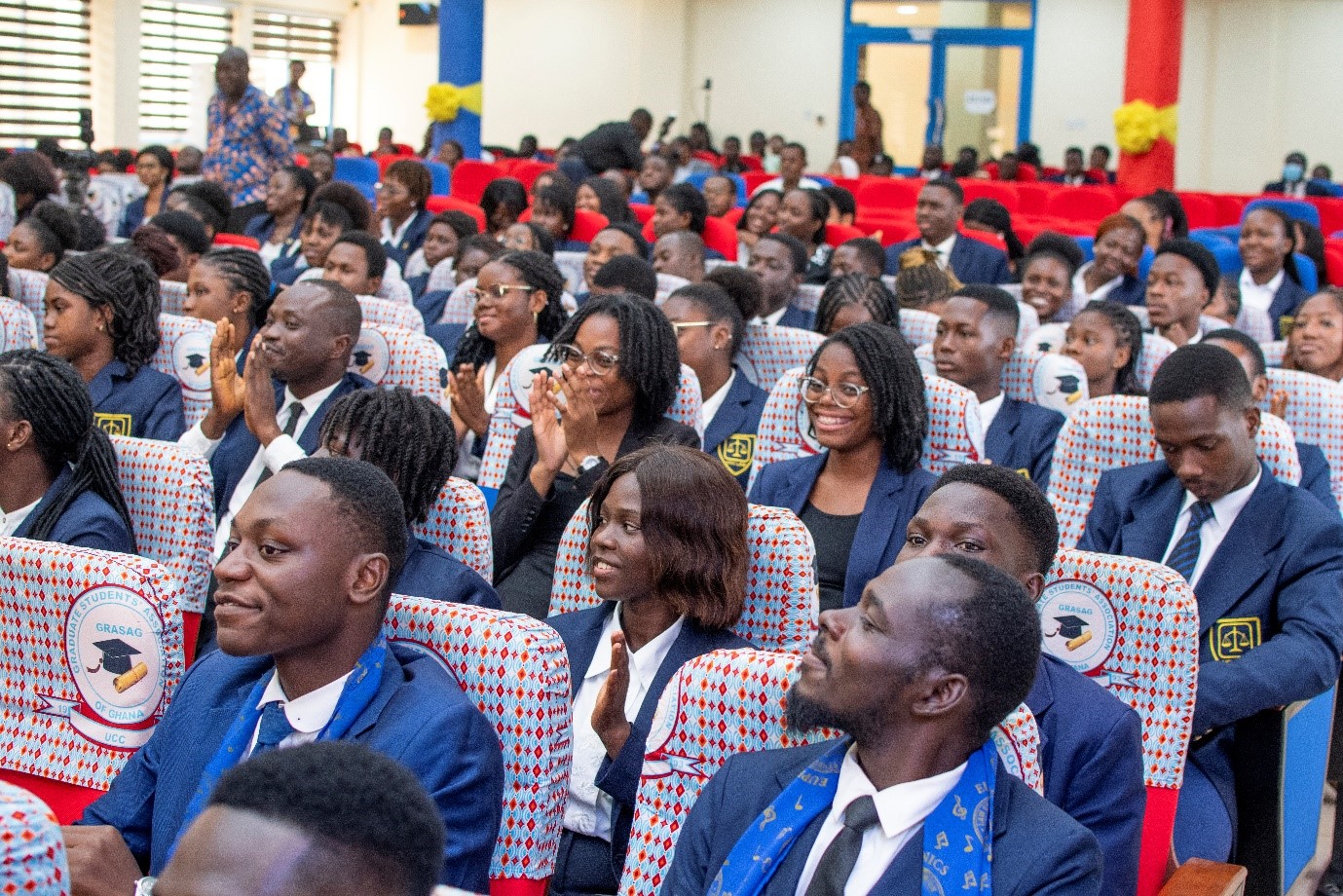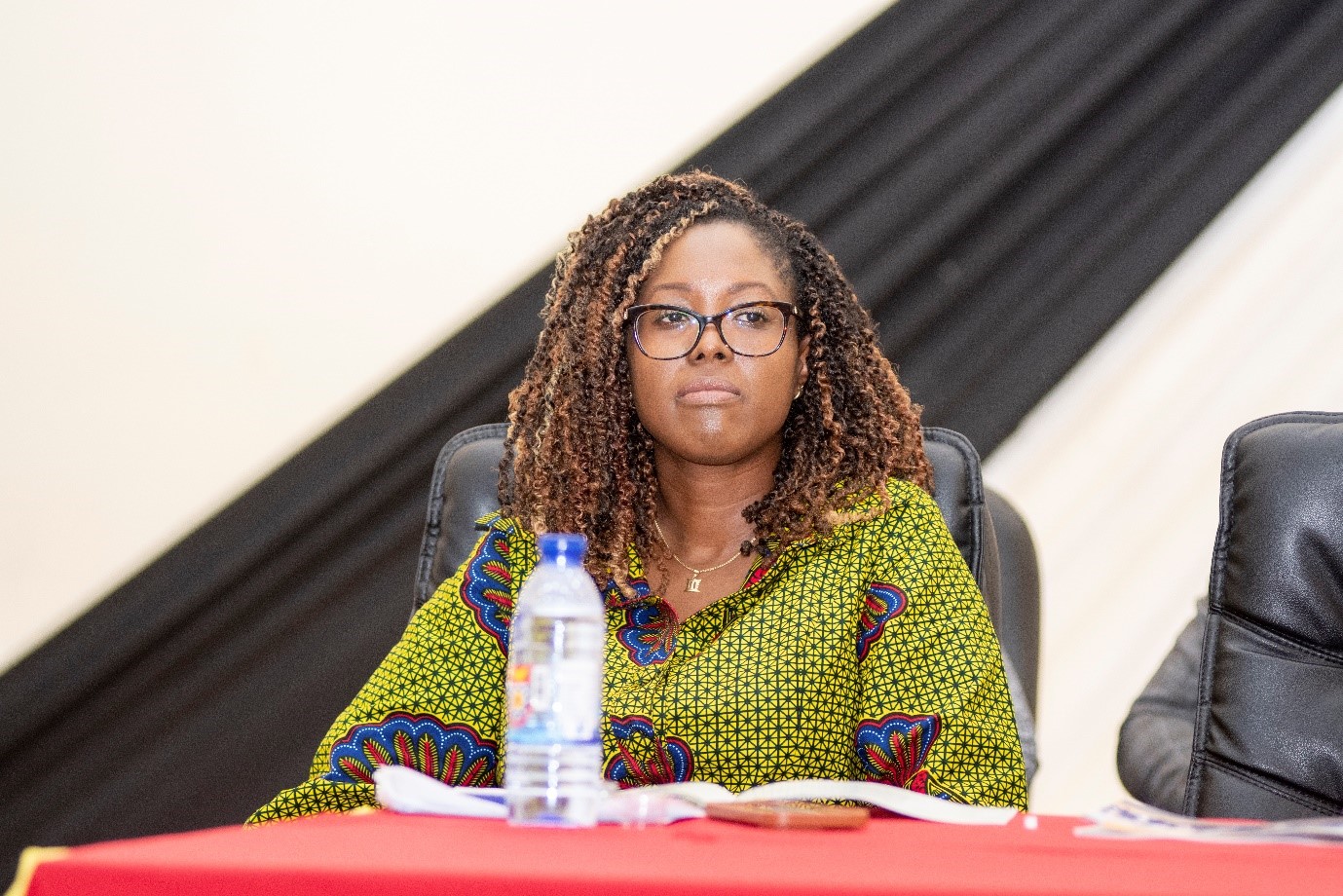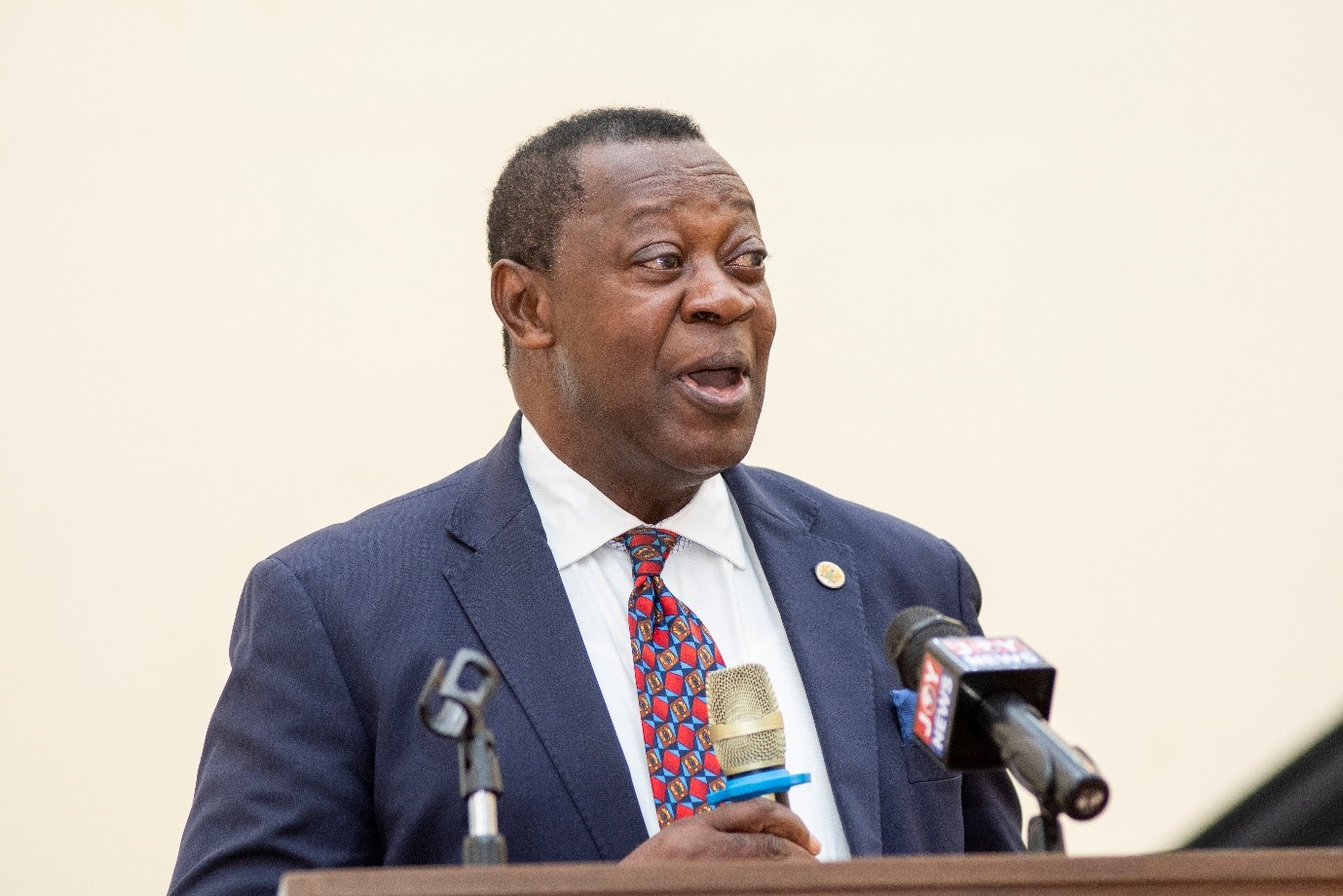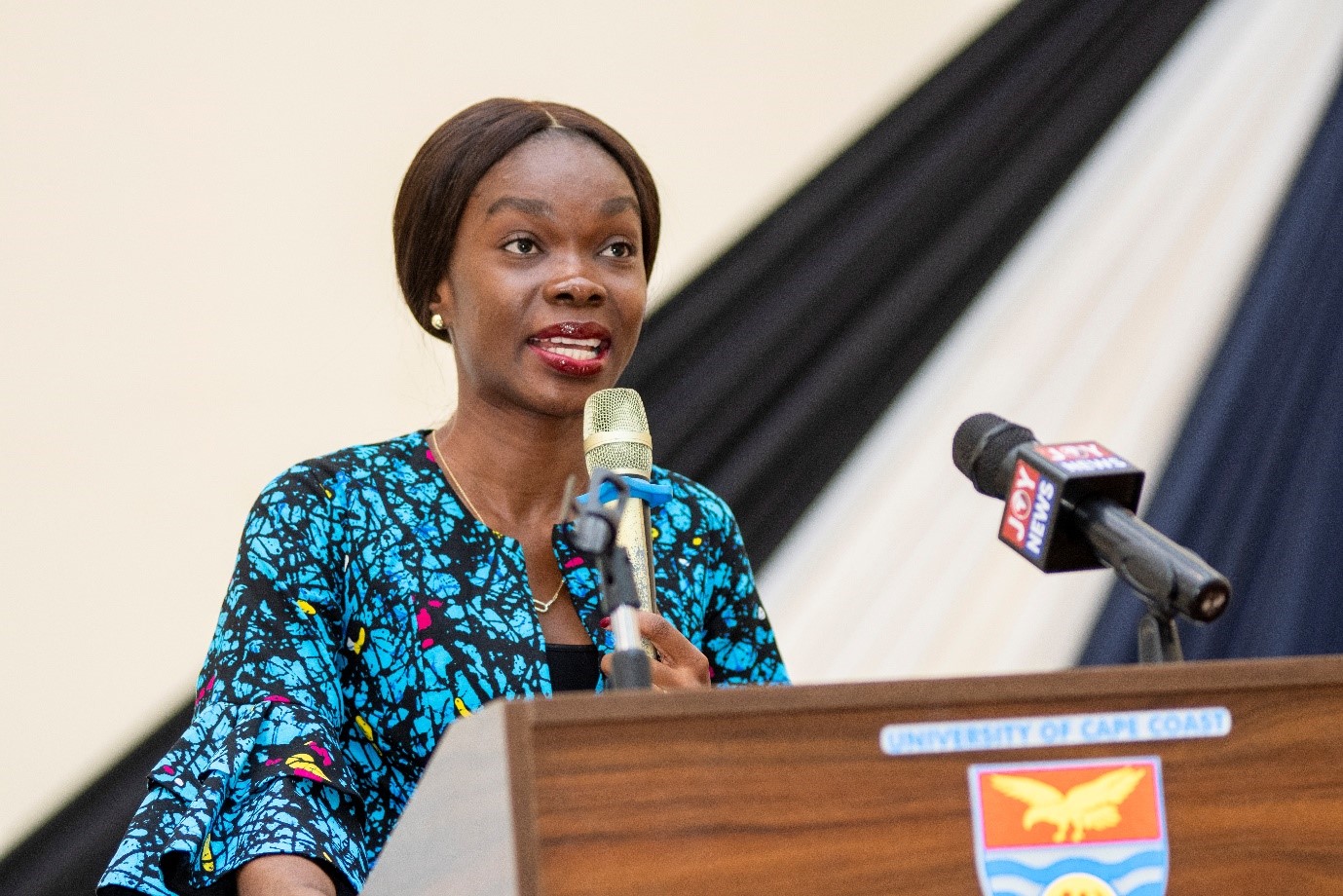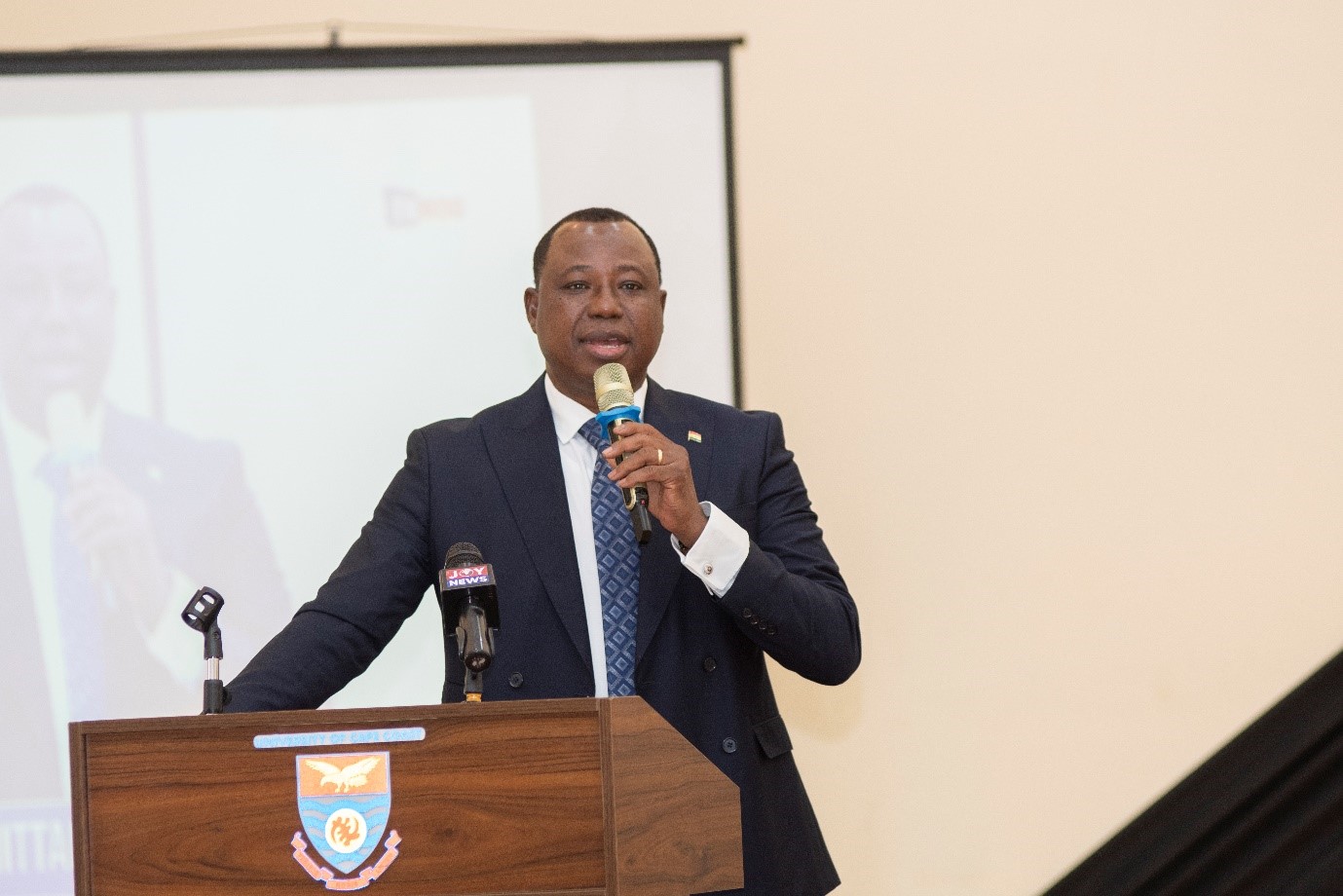The University of Cape Coast Faculty of Law has held the eleventh edition of its annual Jurists’ Confab. The event, which is a gathering of the Bar, Bench and Academia, provides a forum for dialogue between lawyers, scholars, government agencies, the private sector, students and members of the public on current issues related to the administration of justice, legal practice and law-related professions in Ghana.
Held on the theme, “Human Rights under the 4th Republican Constitution: Threats & Triumphs”, the confab featured Professor Agyeman Badu Akosa, a Medical Scholar and Social Commentator; Dr. Maame Efua Addadzi-Koom, Lecturer, Faculty of Law, KNUST and Howard University, USA and Mr. Joseph A. Whittal, Commissioner of the Commission for Human Rights and Administrative Justice (CHRAJ) as speakers.
In her opening remarks, the Dean of the Faculty of Law, Mrs. Julia Elysa Selman Ayetey, indicated that the theme for the confab was crucial, especially in recent times when human rights had suffered intense attacks globally.
Dean of the Faculty of Law, Mrs. Julia Elysa Selman Ayetey
Here in Ghana, she said, the protection and enforcement of human rights over the last several years had seen both threats and triumphs. She noted that the confab presented a good platform for discussion on reducing the threats to human rights and increasing the triumphs.
Ghana’s very existence is threatened
In his submission, Prof. Badu Akosa referred to Chapter 5 of the 1992 Constitution, which is devoted to fundamental Human Rights and Freedoms. He said though very well-articulated, the provisions of that chapter only attempt to make Ghana utopian but make no reference to the traditional values that make the Ghanaian.
He said, per the lecture, the two most important issues will be respect for human dignity and equality and freedom from discrimination under the ambit of cultural rights and practices.
“Cultural rights and practices must be at the heart of development and growth and even though enshrined in the Constitution, there have been serious erosions and drifting away from our culture and traditions in a way that has stifled and lopsided our development” he added.
Prof. Agyeman Badu Akosa
Prof. Akosa said Ghanaians have subsumed cultural and traditional values to western influences in a manner that has become discriminatory and threatening the very existence of the country.
He further indicated that the rule of law and equality under the Law come into sharp focus in Ghana today. According to him, although the Rule of Law is fundamental and recognizes all citizens and institutions within a country including lawmakers, law enforcement officers and judges as accountable to the same law, in practice, that is not the reality.
Are Women’s Rights Prioritised?
Speaking on the theme from the perspective of women’s rights, Dr. Maame Efua Addadzi-Koom raised questions about the extent to which women's rights have been prioritized in Ghana's constitutional and legal framework even though Article 17 of the 1992 Constitution guarantees the equality of all persons before the law and prohibits discrimination on multiple grounds, including gender.
Dr. Maame Efua Addadzi-Koom
Highlighting the four legal realities of what she termed the good, the bad, the ugly, and the oblivious, Dr. Addadzi-Koom applauded the progressive efforts made to advance gender equality (the good), raised concern over those situations that are legally threatening and repugnant to the global and national gender equality agenda (the bad and ugly) and the equally significant situations affecting women that seem to have been forgotten or ignored by the existing legal apparatus (the oblivious).
She concluded with a call for action to all legislators, legal and women's rights activists to take the necessary steps to drive the legislative and policy changes that will transform the bad, ugly and oblivious women's rights situations into better conditions that will breathe life into the equality clauses in the 1992 Constitution.
Inspiring the Future
For his part, the Commissioner of the Commission of Human Rights and Administrative Justice (CHRAJ), Mr. Joseph Whittal, referred to a national survey undertaken by the National Commission for Democracy before the birth of the Fourth Republic which indicated a strong desire by the people of Ghana for a system of government which was committed to upholding human rights.
He said consequently, Chapter 5 of the 1992 Constitution is dedicated to the protection of fundamental human rights. Article 12(1) in particular sets the tone concerning obligations imposed on the organs of state, agencies of government, and where applicable to them, by all juristic and non-juristic persons in Ghana.
Commissioner Joseph Whittal
Commissioner Whittal noted that the fundamental human rights as enshrined in the 1992 Constitution have occasioned several substantial constitutional victories in the courts, enhanced government respect for human rights, and propelled legal reforms such as the repeal of the criminal libel laws.
Drawing perspectives from case law, journal articles, human rights reports, etcetera, he contended that while a lot of human rights strides have been registered (triumphs) under the Fourth Republican Constitution, there are equally serious concerns (threats) that can erode the country's fairly good human rights credentials.
Commissioner Whittal therefore indicated that the notable triumphs recorded can inspire future discourse on human rights and explore possible pathways for further strengthening of Ghana’s human rights regime in light of growing threats.
Provost of the College of Education Studies, Prof. Ernest Kofi Davis
Giving his closing remarks, the Provost of the College of Education Studies, Prof. Ernest Kofi Davis, who chaired the event said the diverse perspectives brought to the light by the speakers were all necessary for enhancing human rights within the country.
He was optimistic the platform had sparked the discourse for further discussions on the subject of Ghana’s human rights.
Students of the Faculty were accorded the opportunity to pose questions to the speakers who addressed them.
Present at the event were the supervising High Court Judge for the Central Region, Justice Kofi Akrowia; Justice Fred Kwasi Awuah (rtd); a former Pro Vice-Chancellor, Prof. G.K.T. Oduro, the Director of Research Innovation and Consultancy, Prof. David Doku and members of faculty.
Source: Documentation and Information Section-UCC

